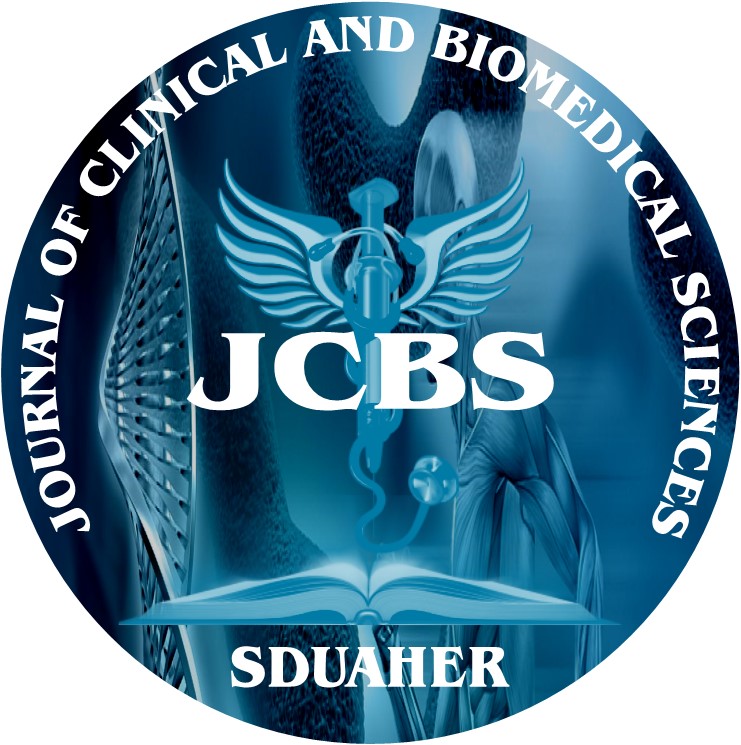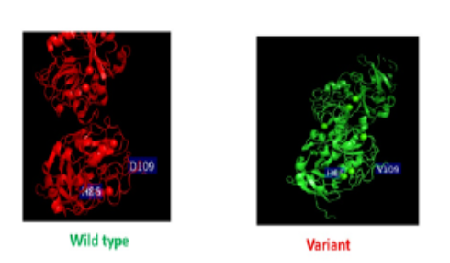


Journal of Clinical and Biomedical Sciences
Year: 2025, Volume: 15, Issue: 1, Pages: 28-37
Original Article
Singh Shivangi1, Chaturvedi Shubhangi1, Pooja 1, Modi Dinesh Raj2∗, Singh Shefali3, Saxena Madhukar4, Katiyar Tridiv5
1Research Scholar, Department of Biotechnology, Babasaheb Bhimrao Ambedkar University, Lucknow, 226025, Uttar Pradesh, India
2Professor, Department of Biotechnology, Babasaheb Bhimrao Ambedkar University, Lucknow, 226025, Uttar Pradesh, India
3Physician, Dr. OP Chaudhary Hospital and Research Centre, Lucknow, Uttar Pradesh, India
4Vice President operation, Chemzin Biotox Research Institute Pvt. Ltd, Baddi, Himachal Pradesh, India
5Research Associate, Department of Molecular Medicine & Biotechnology, SGPGIMS, Lucknow, Uttar Pradesh, India
*Corresponding Author
Email: [email protected]
Received Date:30 August 2024, Accepted Date:13 January 2025, Published Date:25 March 2025
Background: Intelectin 1 is an anti-inflammatory adipocytokine involved in the regulation of insulin secretion. Genetic variations in the coding region of Intelectin can cause hyperglycemia due to impaired glucose levels, increasing the susceptibility to Type 2 Diabetes Mellitus (T2DM). Objective: This study examines the genetic variations in the Intelectin 1 coding region, specifically rs2274907 and rs2274908. Materials and Methods: A case-control study was conducted with 300 participants: 150 individuals with Type 2 Diabetes Mellitus (fasting glucose >125 mg/dL) and 150 healthy controls (fasting glucose <125 mg/dL). The frequencies of rs2274907 and rs2274908 polymorphisms were analyzed using the Tetra Amplification refractory Mutation system and allele-specific PCR, respectively. Results: The study identified a significant association between specific gene variations and increased risk of Type 2 Diabetes mellitus. The TT genotype of rs2274907 showed a higher frequency in the diabetes group (15.33%) compared to the control group (3.33%), with a model of TT vs. AT+AA: X²=12.76, P=0.0004, OR=5.25, and 95% CI=1.93-14.21. Similarly, the AA genotype of rs2274908 was more frequent in the diabetes group (26.66%) compared to the control group (7.33%), with a model of AA vs. AG+GG: X²=18.52, P=0.0001, OR=4.59, and 95% CI=2.25-9.3. Conclusion: This is the first study of the North Indian population suggesting that specific Intelectin 1 gene variations (TT genotype of rs2274907 and AA genotype of rs2274908) are associated with an increased risk of Type 2 Diabetes Mellitus. Variations in Intelectin 1 may impact protein function and stability, serving as potential biomarkers for Type 2 Diabetes Mellitus and targets for personalized medicine.
Keywords: ITLN1, Case-control, Genetic variation, Type 2 Diabetes Mellitus
This is an open-access article distributed under the terms of the Creative Commons Attribution License, which permits unrestricted use, distribution, and reproduction in any medium, provided the original author and source are credited.
Published By Sri Devaraj Urs Academy of Higher Education, Kolar, Karnataka
Subscribe now for latest articles and news.